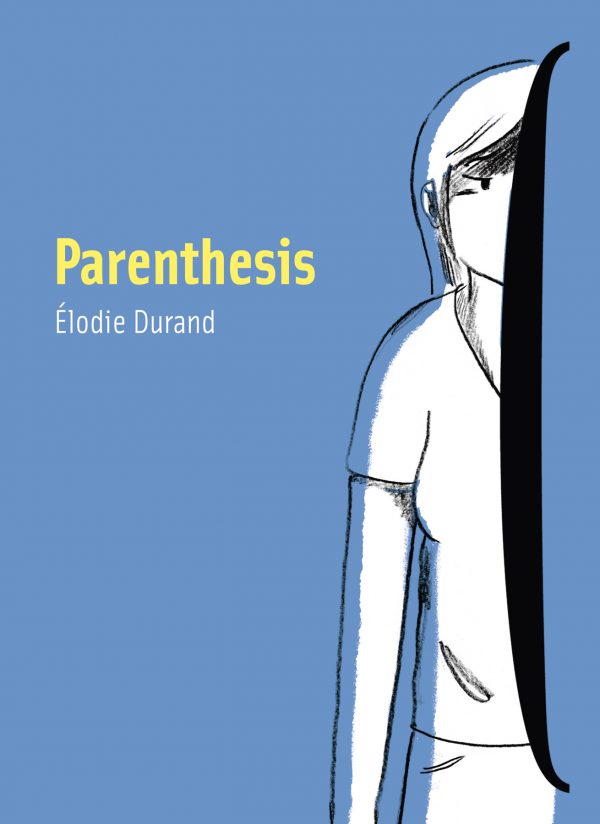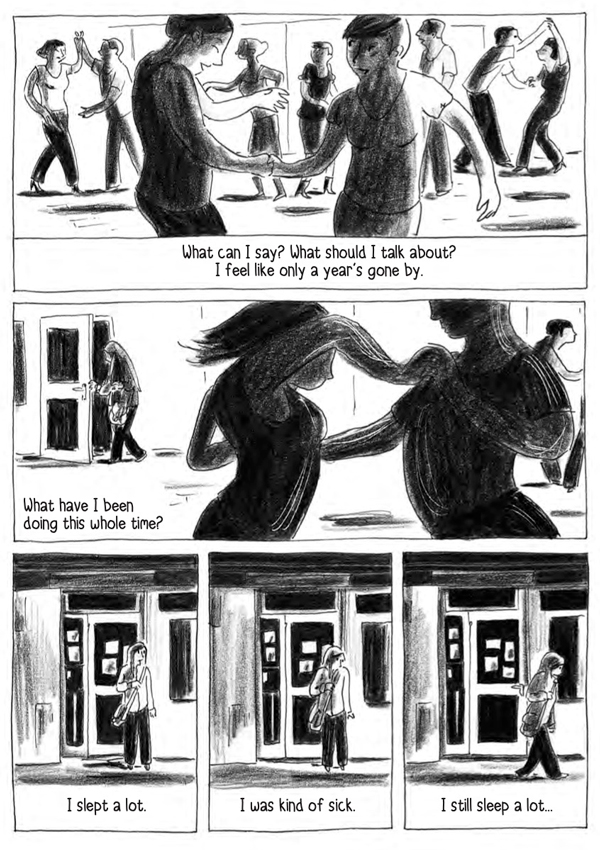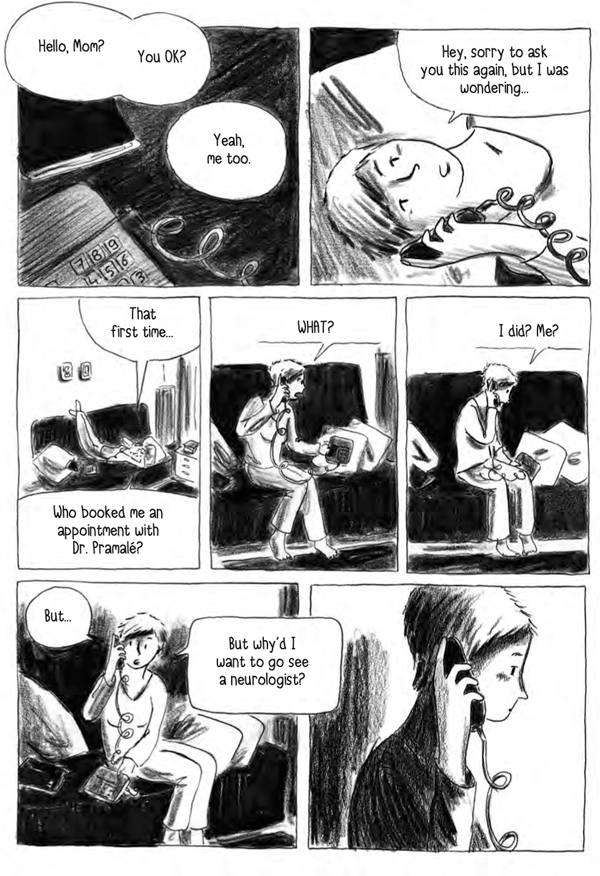Parenthesis
By Elodie Durand
Top Shelf Productions
There are so many horrors a human can face, and one of the worst, at least for me, comes from the inside — losing yourself. There are many ways to do that, from mental illness to dementia and Alzheimers, addictions that bring blackouts, brain injuries, strokes, plenty more. French cartoonist Elodie Durand documents her experience with that struggle in Parenthesis, a medical memoir of her life with a brain tumor that caused seizures, memory loss, and other displacements from self.
It was ten years prior to the graphic memoir that Durand’s problems began, but Durand approaches the retelling with the intention of showing how her experience with the tumor still affects her life and also how other people were affected as well. Part of that latter effort is generous, but it’s also necessary since there is plenty about her experience that she doesn’t actually remember, or remembers muddily, or perhaps even remembers entirely wrong. There’s probably a better word than “wrong” though, since the way she remembers some events are not what happened in the shared reality of the universe, but her perception of it through her impairment has come to affect and shape her as if it really did happen that way. Regardless, her parents’ experience, as well as her sister’s, fills in some narrative gaps for her.
The idea that everyone has a different version of something that happened does become central to Parenthesis, the concept of perception as being an individual manifestation that can be about a shared event. The hard part is that other people’s versions can disrupt any notion of an “official narrative” and humans crave that. It’s probably why the term “my truth” came into being, the acknowledgment that different people can view and experience things in different ways, challenging the very idea of facts. But what about when someone has specific medical issues that cause them to rely on perceptions that exist outside of “my truth?” That’s exactly what Durand ends up portraying.
Durand began feeling the symptoms of the tumor when she was around 24 years old, sometime in the mid-90s, though her sketchiness about these details has a lot to do with the fact that she didn’t really notice her symptoms. She had “spells” that her family noticed, recurring ones of blankness, and she had no clue they were happening — the first indication that there are truths outside your own that matter to your personal well-being.
That can be hard for some people to accept and what follows for Durand is a process of testing and consultation and diagnosis clashing with anger and denial at the doctors charged with helping her. Medical issues have a way of disregarding your personal feelings about them, and as Durand’s condition got worse and worse, her ability to function in the world, to take care of herself, metastasized to multiple parts of her life, between the condition and the medication and procedures sometimes turning her into a ghost within her own existence.
Durand’s triumph here is the ability to draw readers into the experience and really express what it was like to lose oneself, to become engulfed by confusion. Expressing the inexpressible is a talent unto itself, and between her use of dialogue to illustrate her state of mind, but also her artwork, which depicts the confusion that wrapped around her and also offers sections of her sketchbook at the time that express in abstract visual terms where she was. Parenthesis is an immersive work that brings you right into her experience, sometimes swimming, sometimes drowning right along with her. It’s simultaneously a terrifying and inspiring vision and a humble one in its depiction of how fragile the self and reality and truth are for any of us.













Could I give this book as a gift for a 10 years old boy?
Comments are closed.